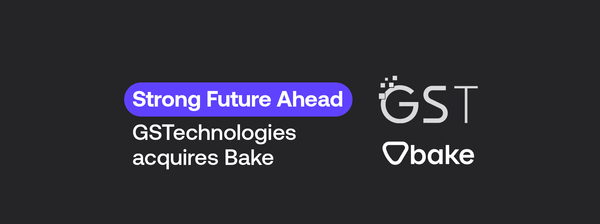Bitcoin ETFs: What Are They and What Do They Mean for Crypto?
The biggest challenge bitcoin faces is its accessibility. Despite its growing popularity, the volatility and complexity of cryptocurrencies like bitcoin (BTC) have often deterred mainstream investors.
The threat of hacks, the responsibility of managing cryptographic keys, and the lack of custodial services — these aren't just operational challenges; they're risks that can translate into substantial financial losses.
This is where Bitcoin ETFs (Bitcoin exchange-traded funds) come in. These funds safely expose you to bitcoin without having to buy, store, or manage it directly.
Bitcoin ETFs are seen as a game-changer for the crypto industry. Big institutional players like BlackRock, Greyscale, and Fidelity intend to set up Bitcoin ETFs, pending the US Securities and Exchange Commission (SEC)’s approval.
If these ETFs are approved, they could potentially attract billions of dollars in new capital to the market, as well as increase market liquidity, decrease volatility, and boost public confidence and awareness.
In this article, you’ll discover what Bitcoin ETFs are, how they work, their impact on the crypto market, and how they’ll transform your crypto investing experience.
What is a Bitcoin ETF?
A Bitcoin ETF (Bitcoin exchange-traded fund) is a financial product that allows you to gain exposure to Bitcoin without actually owning the cryptocurrency itself.
It operates similarly to traditional ETFs, or investment funds traded on stock exchanges. However, instead of holding stocks or bonds, a Bitcoin ETF holds bitcoin (BTC) as its underlying asset.
A Bitcoin ETF empowers you with a convenient and regulated way to invest in Bitcoin. By purchasing shares of the ETF, you can (indirectly) own a portion of BTC without having to deal with the complexities of buying and storing it.
This may appeal to you, especially if you’re new to crypto and don’t have the technical knowledge or resources to securely store crypto. This is different from institutional investors, who may face regulatory restrictions when directly investing in cryptocurrencies.
Types of Bitcoin ETFs
There are two types of Bitcoin ETFs: Spot Bitcoin ETFs and Futures Bitcoin ETFs.
Spot Bitcoin ETF
A Spot Bitcoin ETF directly holds Bitcoin as its underlying asset. This type of ETF tracks the actual "spot" price of Bitcoin.
Spot Bitcoin ETFs are the “big” ETFs that institutions like BlackRock, Fidelity, and Greyscale are looking to roll out. They have the potential to unlock a $100 billion market and will have a substantial impact on the crypto industry if approved.
Futures Bitcoin ETF
Unlike Spot Bitcoin ETFs, Futures Bitcoin ETFs do not hold BTC directly. Instead, they’re similar to traditional futures contracts, acting as agreements to buy or sell Bitcoin at a specific price on a specific date.
Futures Bitcoin ETFs are generally considered less risky and, therefore, less impactful on the crypto market. In fact, ProShares, VanEck, and Valkyrie already offer SEC-approved Futures Bitcoin ETFs.
How Does a Spot Bitcoin ETF Work?
A Spot Bitcoin ETF mimics the price of Bitcoin by directly holding a certain amount of BTC.
When you invest in a Spot Bitcoin ETF, you buy shares that represent a portion of the fund's holdings in BTC. Here's how it works:
Bitcoin ETF Creation
To create a Spot Bitcoin ETF, an “authorized participant” (typically a large financial institution) acquires a certain amount of BTC and deposits it with the ETF issuer. The participant then receives the equivalent amount as “shares” in the ETF.
Stock Exchange Listing
Once the shares are created, they can be traded on an exchange just like any other stock or commodity. You can then buy and sell these shares during regular trading hours.
BTC ETF Price
The price of the shares is determined by demand and supply. This means it may not always perfectly reflect the price of BTC itself. However, exposure to traditional stock markets increases BTC liquidity and trading volume, making the price difference likely to be minimal.
Regulatory Oversight
Being traded on regulated exchanges means that Spot Bitcoin ETFs are subject to the same regulatory oversight as other financial products. This offers a layer of protection to institutions that may have otherwise been hesitant or legally prohibited from investing in BTC.
Institutions Currently Filed for Spot Bitcoin ETFs
There are currently ten active spot Bitcoin ETF applications:

What Does a Bitcoin ETF Mean for Crypto?
Mainstream Adoption
Bitcoin ETFs make it easier for mainstream investors to access the crypto market. It is a simplified entry point that could lead to an influx of new buyers and bring a wave of new capital into the market.
Regulatory Clarity
With mainstream adoption comes the inevitable eye of the regulator. While this can bring about much-needed consumer protection, it also means that the “wild west” days of crypto are coming to an end. Expect more rules, more oversight, and even more paperwork.
Price Impact
The demand generated by Bitcoin ETFs could have a direct impact on BTC’s price. More demand usually means a higher price — something many experts are predicting if the ETFs are approved. But the price could also be affected negatively, depending on the popularity of the ETFs and how they are managed.
Less Volatility
The entry of institutional investors through ETFs could lead to more stability in BTC’s price. Institutional money may help to stabilize prices and prevent the volatile price swings BTC is used to. However, the ease of trading ETFs compared to actual BTC could also have the opposite effect, leading to a more reactive market and creating greater volatility.
Financial Innovation
The introduction of Bitcoin ETFs paves the way for other crypto-based financial products. Ethereum ETFs, DeFi funds, and even NFT indexes will all likely gain more attention and legitimacy. This could lead to a more diversified investment landscape, where you can spread your assets across multiple crypto-related instruments.
Advantages of a Bitcoin ETF
- Ease of Access: Bitcoin ETFs are traded on traditional stock exchanges, simplifying the process of entering the crypto market.
- Risk Mitigation: The professional management of these funds minimizes the risk of hacks or fraud.
- Regulatory Oversight: Clear regulations already exist for ETFs that will extend to Bitcoin ETFs. This offers investors a layer of protection and credibility that direct BTC investments lack.
- Diversification: Investors can include Bitcoin ETFs in their existing portfolios without the need to manage a separate digital wallet.
Disadvantages of a Bitcoin ETF
- Indirect Ownership: Investors in Bitcoin ETFs do not hold the actual cryptocurrency, limiting their control over the asset.
- Incorrect Pricing: There may be a difference in price between the ETF and the actual price of BTC.
- Management Fees: ETFs come with significant management fees. These can eat into profits and reduce returns.
Bitcoin ETFs are the Smart and Safe Way to Get Into Crypto
A Bitcoin ETF offers a straightforward and regulatory-compliant way to trade BTC using markets that investors already know well. They provide you with a way to directly invest in BTC without being exposed to issues of self-storage, the risks of hacks or fraud, or the uncertainty of legal backlash.
The mainstream acceptance of BTC will advance upon the SEC's approval of Spot Bitcoin ETFs (and its price will likely spike upwards).

DISCLAIMER: Please note that the information on this blog and in any articles posted on this blog is for general information only and should not be relied upon as financial advice. Cake Pte. Ltd., Cake DeFi, UAB, and its affiliates (the “Cake Group”) are not licensed financial advisers. You may wish to approach your own independent financial advisor before making any decision to buy, sell or hold any product and/or digital assets mentioned in this blog.
Any views, opinions, references, assertions of fact and/or other statements are not necessarily the views held by the Cake Group. The Cake Group disclaims any liability whatsoever that may arise out of or in connection with such statements. Always do your own research before investing in any financial assets and consult a qualified financial advisor if necessary.




